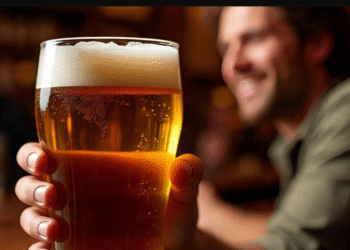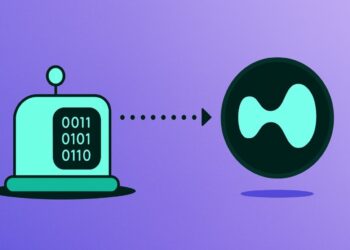The same man who once shook up India’s food industry with a viral Instagram video is now selling protein powder—and people have a lot to say about it.
The Label Critic Becomes a Brand Creator
Revant Himatsingka, better known as Foodpharmer to his 2.9 million Instagram followers, built a reputation tearing down deceptive health claims. Now, he’s on the other side—launching a health food brand of his own.
On July 24, his new whey protein label Only What’s Needed (OWN) will go live. The name, chosen by his audience, signals a direct challenge to the additive-heavy, marketing-first philosophy of traditional food companies.
“This isn’t about selling protein,” Himatsingka said in an interview. “This is about rethinking how food brands are built.”
OWN isn’t just his product—it’s the public’s. Every major decision, from the brand name to product formulation, was crowdsourced via polls on social media.
OWN is a crowd-created comeback to Big Food.

From Bournvita to Brand Building
Himatsingka shot to fame in 2023 after posting a reel exposing the sugar content in Bournvita, a drink often marketed as healthy for kids.
What followed was a legal storm. Mondelez, Bournvita’s parent company, forced him to take down the video, which triggered national headlines and a wave of consumer awareness around label reading.
That video became the spark behind Label Padhega India—his campaign encouraging people to read food labels and question exaggerated health claims. Since then, he’s taken aim at over 100 brands. Herbal cosmetics. Junk food masquerading as wellness. Low-quality products endorsed by celebs. You name it.
But he paid a price.
Eight legal notices, defamation suits, and a near prison sentence haven’t slowed him down.
Legal Fights and “Talk to My Lawyer” Swagger
Speaking at the Indian Healthy Snacking Summit 2025, Himatsingka revealed just how intense the legal backlash has been.
He’s been hit with lawsuits worth crores, including a six-month jail threat. At one point, he even signed court orders that barred him from mentioning certain brands.
That’s when things shifted. He realized how many large companies owned dozens of smaller products—and how legal pressure could silence critical voices by design.
So he switched gears. At the summit, he arrived wearing a “Talk to My Lawyer” tee and declared:
“If you send me a legal notice, I’ll get you publicly noticed.”
He’s not backing down.
Can a Non-Bodybuilder Sell Protein Powder?
Revant doesn’t fit the typical protein pitchman look. He says it himself—he’s skinny, doesn’t lift heavy, and isn’t a gym junkie.
This, he argues, is exactly the problem with how protein has been marketed. OWN isn’t for bodybuilders. It’s for everyday people.
Parents. Grandparents. Kids. People who live in protein-deficient households and never touch supplements because they feel it’s not “for them.”
Here’s what OWN is trying to change:
-
Protein should be part of a basic Indian diet—not a gym ritual.
-
Clean labels shouldn’t be luxury items.
-
Real health products shouldn’t need marketing spin.
And even though he’s the face of the brand, he’s already bracing for critics. “The minute I slip up, they’ll come after me,” he said.
He knows the microscope is 10x closer now.
Pricing Pressure and Radical Transparency
The product has already seen early traction. Thousands placed pre-orders even before the label was revealed. But feedback rolled in fast—many said it was too expensive.
Instead of dodging the issue, Himatsingka did the opposite. He promised to share the full profit and loss sheet.
Everything.
From raw material receipts to supplier costs to per-product economics.
This move isn’t just unusual—it’s almost unheard of in the Indian consumer product space. And he’s crowdsourcing next steps too.
He wants the public to help decide how OWN should price itself.
Table Talk: What’s in Your Protein?
OWN’s entire pitch rests on minimal, purposeful ingredients. So how does it compare to some of India’s popular whey protein brands?
| Brand | Ingredient Count | Artificial Sweeteners | Focus Area |
|---|---|---|---|
| OWN (Only What’s Needed) | 3-5 | None | General nutrition |
| MuscleBlaze | 8-12 | Yes | Gym performance |
| Optimum Nutrition | 10+ | Yes | Muscle recovery |
| MyProtein | 9-14 | Yes | Fitness/bodybuilding |
OWN is stripped down—on purpose.
He isn’t asking people to stop trusting labels. He wants to make labels readable in the first place.
Clean Eating, but With Realistic Expectations
Revant knows clean food still isn’t accessible for everyone. “100% clean food is too expensive for most Indians,” he admits.
That’s why OWN isn’t trying to be perfect—it’s trying to be better.
He’s not promoting elitist health fads. He believes in simple swaps. Replace chips with makhana. Sugary drinks with coconut water. Small changes. Not overnight overhauls.
More brands are catching on, he says, but there’s still a long way to go.
And he’s betting that by 2030, clean label products won’t be the exception. They’ll be the norm.
He’s not chasing a trend—he’s building for a shift.
Creator, Not Influencer
Over the years, Himatsingka has refused millions in endorsements. Literally.
He claims some food brands offered him more than what Indian cricket captains make in sponsorships. He walked away from all of them.
Why?
Because he doesn’t want to blur the line between critic and promoter.
That said, he’s not against ads. He recently teamed up with boAt—not for food, but for a headphones test—sticking to tech where his brand trust remains untouched.
OWN is his first food product. And it might not be his last. But now that he’s stepped into the business world, the old rules don’t apply anymore.
Big brands are watching. Consumers are waiting. The question is no longer what he’ll call out.
It’s whether he can walk his talk.









